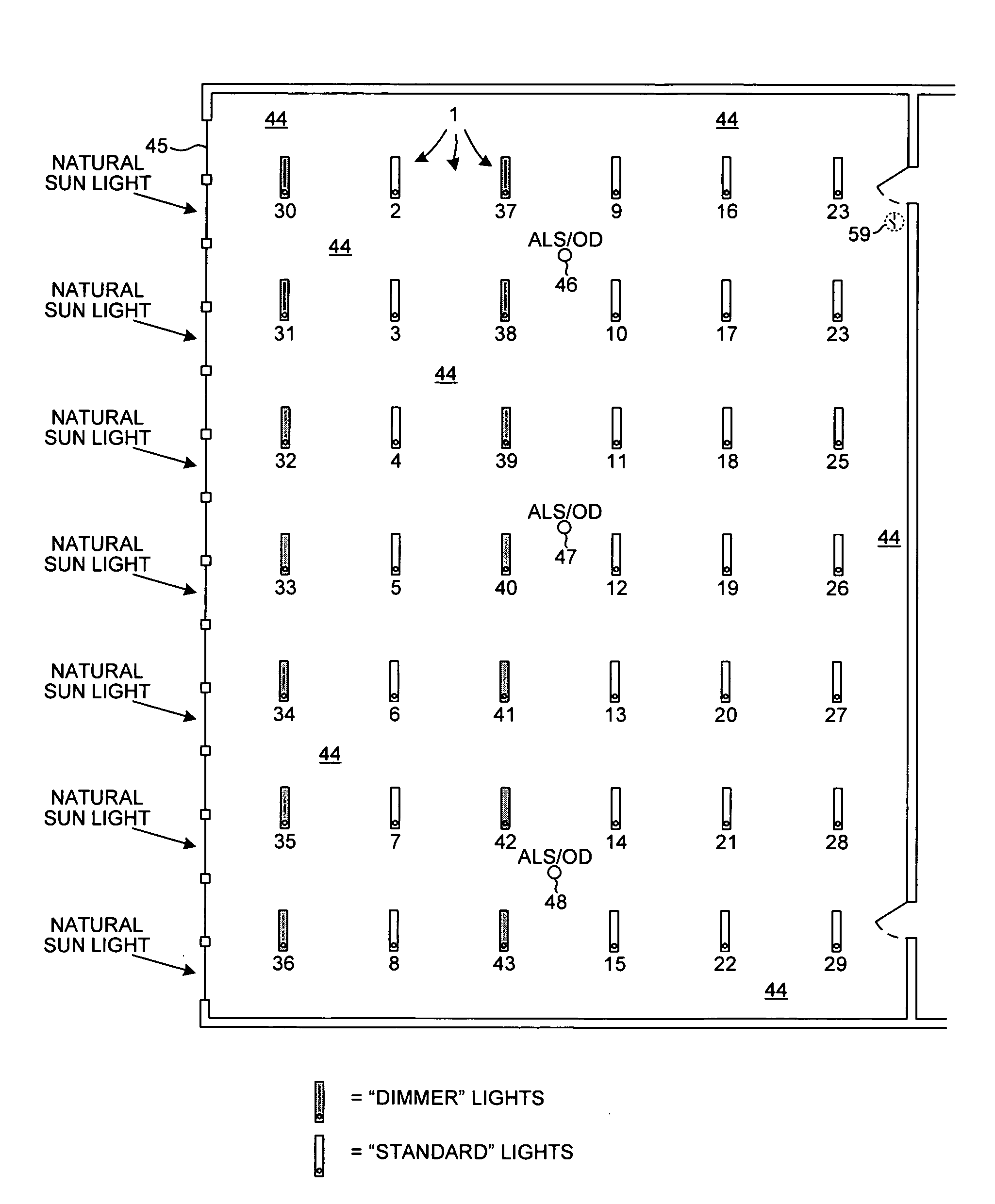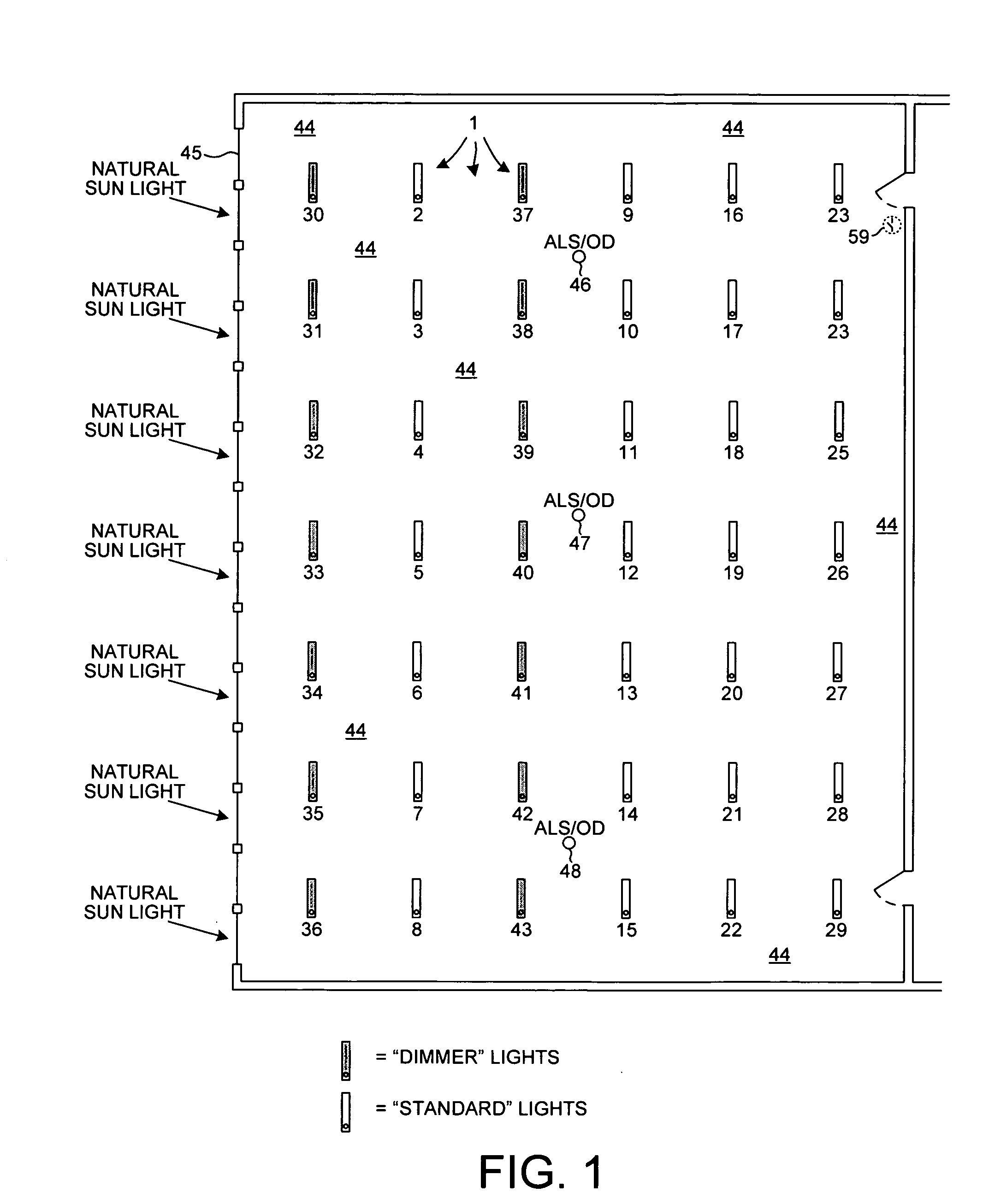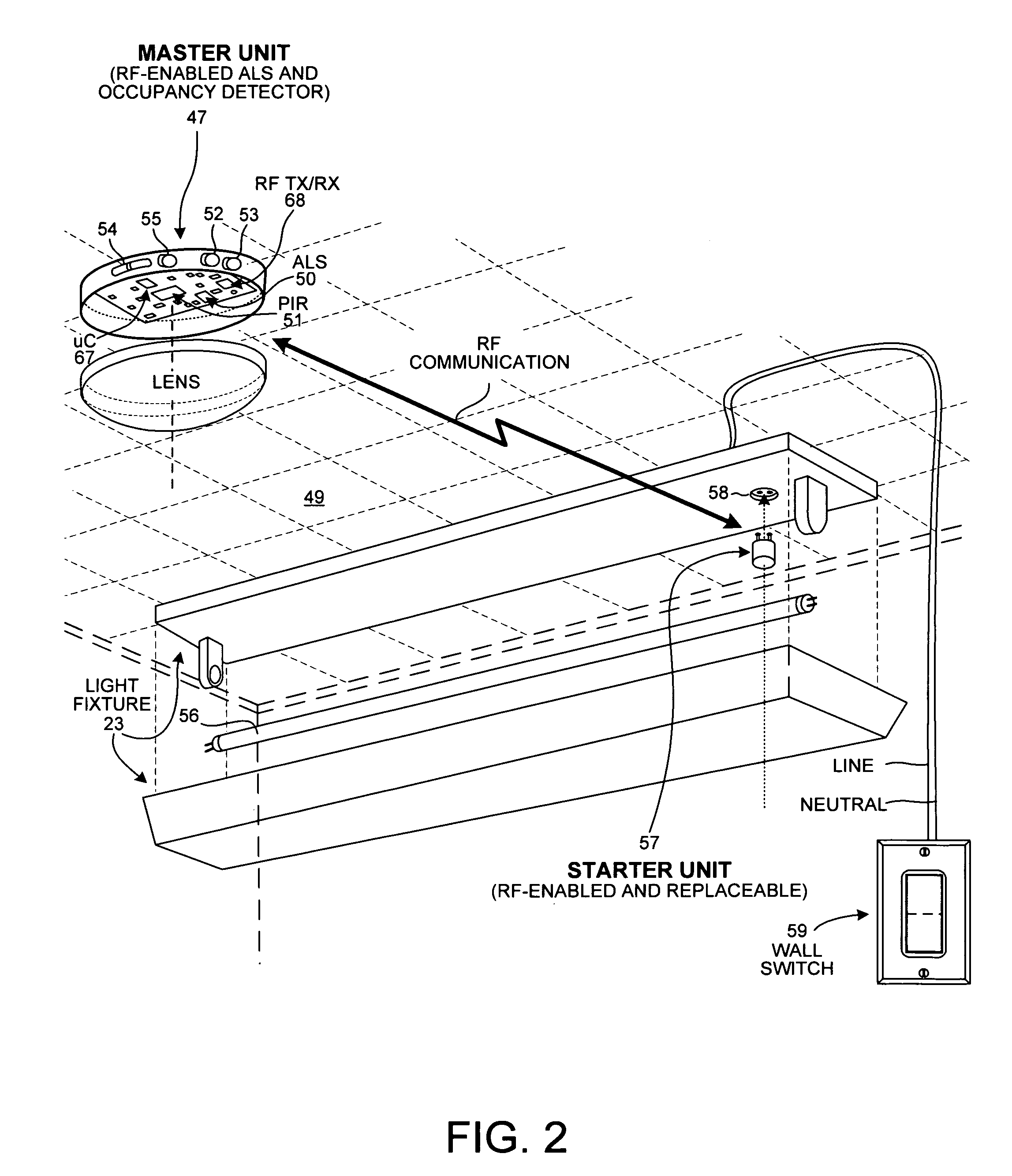Ambient light sensor auto-calibration in a lighting control system
a technology of ambient light sensor and lighting control system, which is applied in the direction of lighting apparatus, light sources, instruments, etc., can solve the problems of difficulty in determining how much the threshold is being changed, manual adjustment of the spread between the two thresholds, and inability to accurately determine the threshold amount, so as to prevent excessive artificial illumination of the area and reduce energy consumption.
- Summary
- Abstract
- Description
- Claims
- Application Information
AI Technical Summary
Benefits of technology
Problems solved by technology
Method used
Image
Examples
Embodiment Construction
[0018]Reference will now be made in detail to background examples and some embodiments of the invention, examples of which are illustrated in the accompanying drawings.
[0019]FIG. 1 is a diagram of a lighting control system 1 in accordance with one novel aspect. Lighting control system 1 has a dimming capability. In the illustrated example, there are forty-two fluorescent light fixtures 2-43 disposed in a room 44 of a building. The left side of the room has a number of windows 45 that let natural sunlight into the room during the day. In addition to the light fixtures, system 1 includes three master units 46-48. Each of the master units and each of the fluorescent light fixtures includes a Radio-Frequency (RF) transceiver. The master units 46-48 intercommunicate with one another and with the light fixtures 2-43 using wireless RF communication such that the master units can control individual light fixtures to be on or off.
[0020]In the present example, the light fixtures 2-43 are grou...
PUM
 Login to View More
Login to View More Abstract
Description
Claims
Application Information
 Login to View More
Login to View More - R&D
- Intellectual Property
- Life Sciences
- Materials
- Tech Scout
- Unparalleled Data Quality
- Higher Quality Content
- 60% Fewer Hallucinations
Browse by: Latest US Patents, China's latest patents, Technical Efficacy Thesaurus, Application Domain, Technology Topic, Popular Technical Reports.
© 2025 PatSnap. All rights reserved.Legal|Privacy policy|Modern Slavery Act Transparency Statement|Sitemap|About US| Contact US: help@patsnap.com



